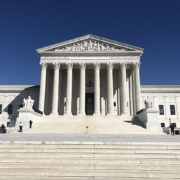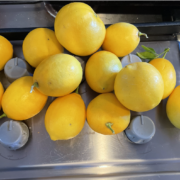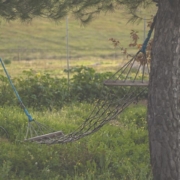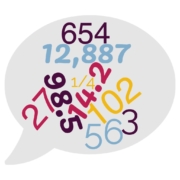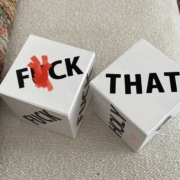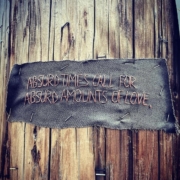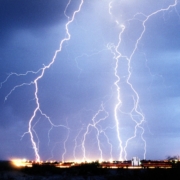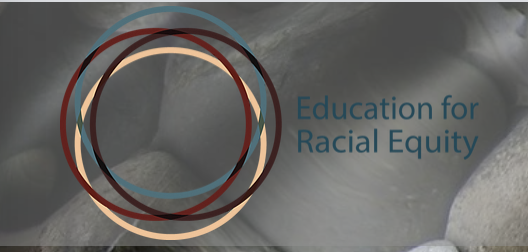The food bank is closed.
It’s Wednesday and the day when I would normally be headed out to a five or six hour shift at the food bank eight blocks from my house. But I’m not going today, or ever again, as it turns out. The parent agency shut us down last week for a variety of reasons (all of which made me sad and frustrated and angry).
Our little food bank was the smallest in the city, and it was because of our small size that we were able to be agile and flexible and make a huge difference in people’s lives, both before the onset of Covid and during. The director – the only paid employee – did the job part-time but she did it with all of her heart and soul. She was dedicated to making sure that we centered our clients, that we understood who they were and what they needed, and that we led with equity and social justice principles and treated every one of the folks we served with dignity. The rest of us were volunteers – some working two hours a week and others many, many more than that.
Because of our location, we served a diverse population of folks – Cambodian and Chinese and Filipino communities. Hispanic folks and Black folks and white folks, too. Before Covid hit, we were set up like a store and farmer’s market (thanks to the partnership we had with a local church congregation that brought us gorgeous fresh produce every Wednesday morning – things like bok choy and garlic and melon and apples and salad greens) and when we opened our doors at noon, there was a line around the block. We had homeless folks who came to us looking for ready-to-eat food (which we made sure to set aside for them; things with pop tops and plastic utensils and granola bars and boxes of raisins), and a partnership with a convenience store down the block that would allow them to use the microwave to heat up their food without asking them to make a purchase. We served many many women and children living in domestic violence shelters or transitional housing, and often set aside birthday cakes or cupcakes for special occasions. We knew our families who needed nut-free or gluten-free food, those who didn’t know how to use canned goods, but wanted frozen meat and fresh vegetables, and we worked with each individual to put together the food that they needed and wanted and would use the most.
When Covid hit, we worked hard to shift, delivering food to every household (which meant we could no longer serve homeless folks), and putting together boxes using what we got from the federal government as well as using donated money to purchase things like cooking oil and baking mix and spices to supplement. The director and I sat down every week and crafted a menu for the following week, anchoring it around one or two specific meals, after looking over what we were projected to receive in our delivery. If we saw we were getting frozen ground beef, we purchased sloppy joe mix and hamburger buns and a complementary vegetable. Egg noodles prompted us to get all the ingredients for tuna casserole. Anticipating the holidays, we stockpiled whole chickens and purchased stuffing and solicited donations of pumpkin pie for everyone. We put together boxes with snacks and made sure we gave everyone enough for multiple breakfasts, lunches, and dinners every week. And it still wasn’t perfect because some weeks we only got pork and we knew our Muslim families wouldn’t eat it; we knew our gluten free clients couldn’t eat about 30% of what we sent them. But we had no choice – we had to send everyone the same thing, and we found other ways to serve our community.
With the leftover produce and some of the random things we got from food drives and our snack supply, I put together boxes of food every week to take to the tent encampments in the neighborhood. I brought loaves of sandwich bread, peanut butter and jelly, pouches of tuna, small boxes of cereal and shelf-stable milk, and apples and bananas. We found a way to help the folks we used to help.
When we had a surplus of huge quantities of frozen meat and rice and orange juice, I called two mutual aid groups and arranged for them to meet me on the weekend and fill their cars and trucks to serve their communities. It helped us free up freezer space and made sure the food was eaten by folks who needed it. Another one of the volunteers is a pastor and he arranged for a group who makes sack lunches for homeless folks to come and get juice boxes and sandwich fixings on a regular basis.
We worked really hard to adapt to the Covid restrictions placed on us, working outside in pouring rain and wind trying to keep the food dry as we social-distanced and packed individual boxes, putting together a crew of amazing volunteer drivers who came one by one all day on Wednesday to fill their cars with boxes of food to drop at households in need, and pivoting when our delivery was late or when we got more than we could possibly store in our small facility. When we got CARES Act money and realized how restricted it was and how quickly we had to use it or lose it, we spent some time bitching about the bureaucracy and how out of touch politicians are with the needs of people in this country, and then we put our heads together to figure out how to make it work for the people we feed every week.
So when I got a text message at 2pm last Tuesday, informing me that the following day was our last day and that we needed to get rid of all the food in our storage areas (eight freezers and five refrigerators, two accessory sheds plus a 400 square foot warehouse) by the end of the day, I was stunned. In addition to the food we had been stockpiling in anticipation of another lockdown, we had 10,000 pounds of food still to be delivered that day. And all of the other groups – the homeless camps, the mutual aid groups, the sack lunch folks – they were out of luck after that, along with our regular delivery clients. The agency believed that the other food banks in the city could “absorb the need,” but they have no idea what we do or how many people we feed in any given week from our little tiny food bank. We have done a phenomenal job of feeding hundreds and hundreds of people with the very few resources we’re given, and we have done it with dedication and a bedrock foundation of love. There were always frustrating elements to the work – the times when we had thousands of pounds of dried beans and local grocery stores sent us hundreds of day-old (weeks old) pastries, but we lacked milk and fresh meat; when neighbors who were moving emptied their pantry of expired, half-eaten items and dumped them on the sidewalk with a note that said “food bank.” But because we were small, we were also scrappy.
I showed up at the food bank last Wednesday just after 7am and got to work. After planning with the director, I mobilized the volunteer crew and we all worked our tails off, sending out more boxes than we’d ever sent before, putting out the call to mutual aid groups and other organizations, stocking our sidewalk “Little Free Pantry” to the gills, crying and reminiscing and and making sure we did what needed to be done. I have never been so physically exhausted in my life, nor have I ever been more proud of a group of people who came together once a week to thoughtfully serve their community.
I have no idea how folks will get the food they need now, but I’m actively trying to bridge the gap for many of them. This scenario is a sad reminder to me that when we rely on systems like these, we will never get what we need in a sustainable way because the system will always find a way to center itself over the beings it was designed to serve. When we rely on people, we get creativity and care and things get done, but it’s always a precarious situation. The system can impose its will and shut down the ability of the people to do what they have been doing. And in systems like this, the inflection point is the worker – they are the one who carries the burden of both toeing the line that the system has created and working creatively to help the people they are trying to help. This is why teachers spend their own money on classroom supplies and work 80 hours a week while only getting paid for 40. It’s why we flexed to find ways to serve mutual aid groups and homeless folks even though we weren’t given any resources to do that work – because we as the workers knew it was important enough to us to figure it out, and as long as it didn’t ask the system for anything, they were willing to turn a blind eye. But even if they hadn’t shut us down, it was unsustainable. We were running out of resources – time, money, energy from volunteers – and the system wasn’t going to give us any more.
I am incredibly sad that this is the decision that was made, and also not at all surprised. When we continue to create systems that pretend to serve human beings but center themselves within capitalism and “business models,” this will always be the way it goes, eventually. When it becomes too hard or too expensive to continue serving people well and with dignity, the system will cut corners in order to spare itself. To be sure, I will take the lessons I’ve learned here – both about the system and about the potential of caring, committed workers – to my next endeavor, whatever that may be, with an eye toward finding better ways to help my community. Stay tuned.
PS – I DO count among my victories during my tenure at the food bank the fact that I was able to convince the agency to give every household a $50 gift card to a local grocery store inside their food delivery for the last two weeks we were open. This post from a few months ago details my thinking about this and why I wish, in all actuality, ALL food banks would close in favor of simply giving people money to purchase the food they need when they need it.
